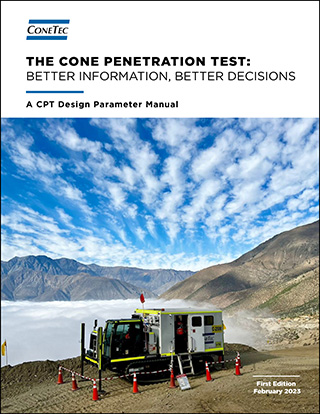Cone Penetration Testing
Offering a Full Suite of In-Situ Testing Services.
As of 2024, Geotech Drilling has joined ConeTec and together offer cone penetration testing plus a complete range of in-situ testing capabilities for geotechnical, environmental, and mineral exploration projects.
A comprehensive site characterization project often requires a range of in-situ tests. Geotech and ConeTec use state-of-the-art systems to efficiently and accurately collect in-situ test data. We will deploy a variety of tool types designed to best measure the anticipated subsurface conditions.
Refer here for more information on CPT technologies and other in-situ testing tools available:

